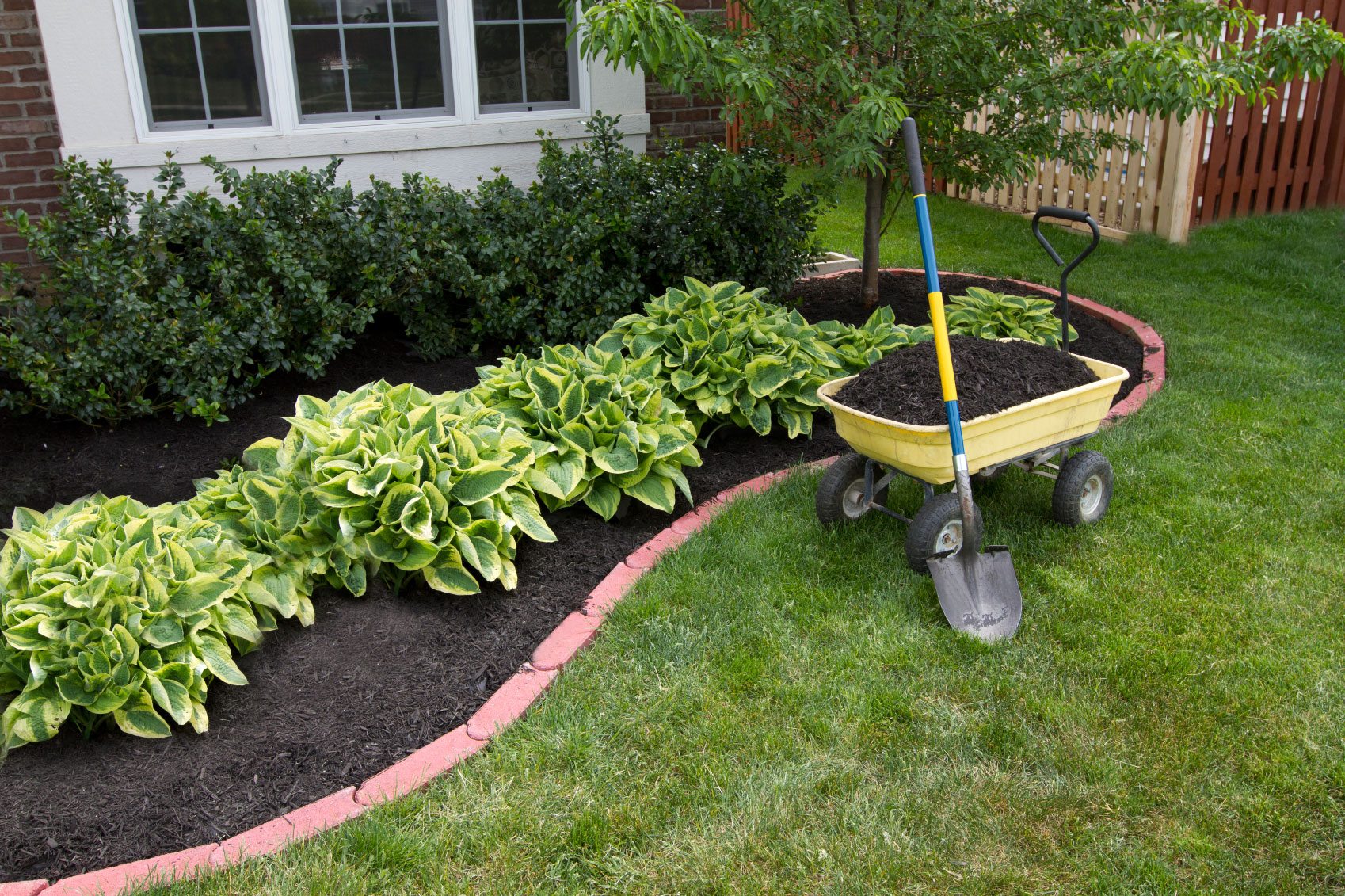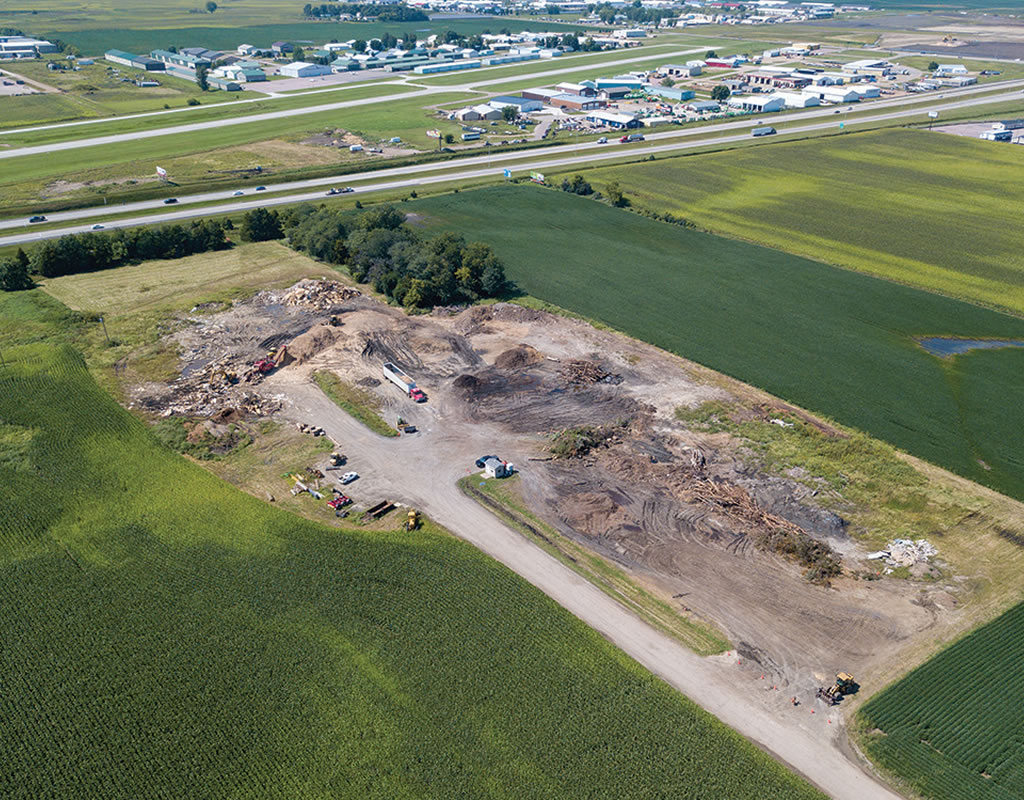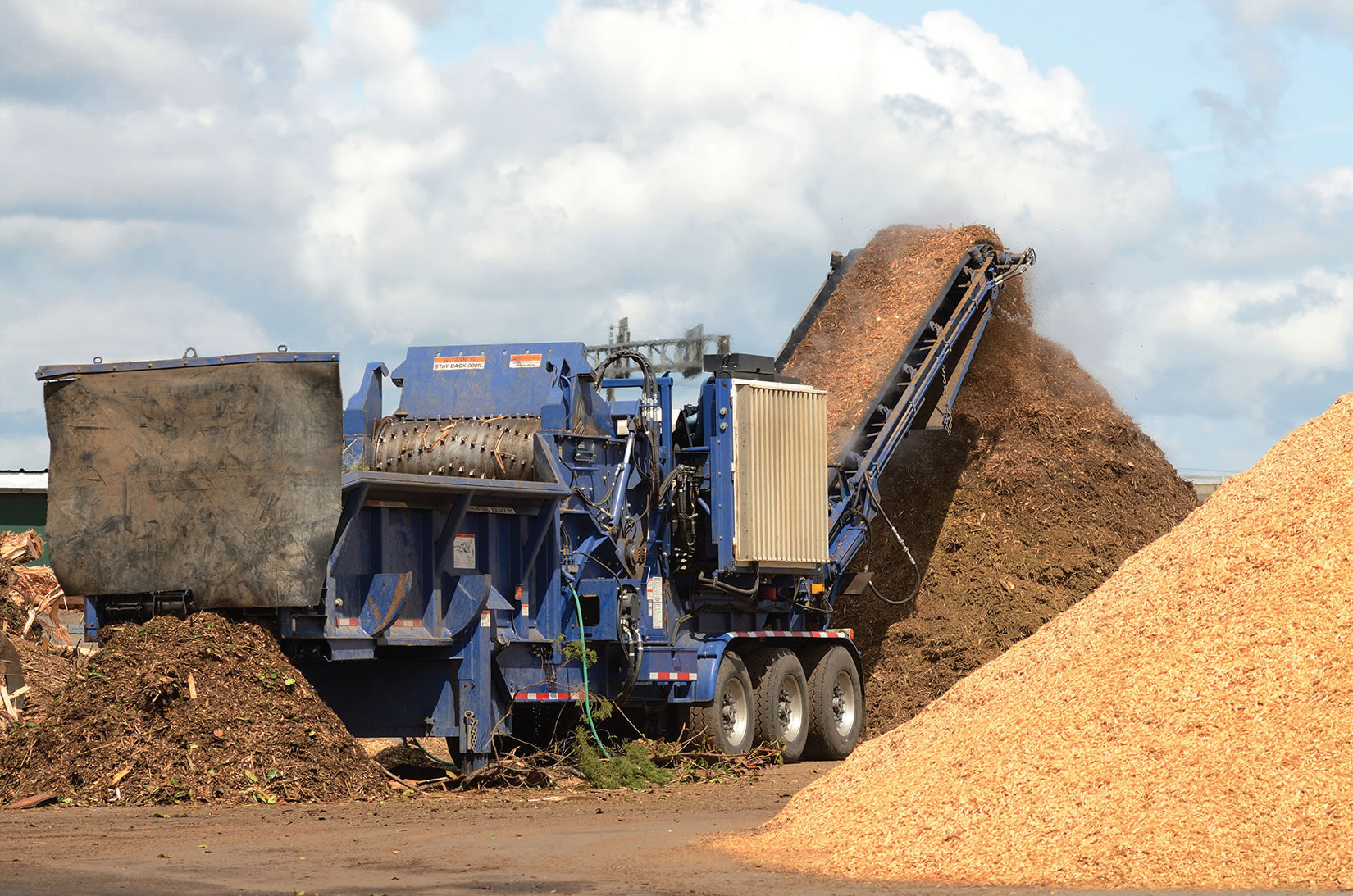By Ken McEntee
For almost 40 years, Hardwood Mulch Corp., located about 35 miles southeast of Richmond, Va., hauled loads of wood mulch to a loyal customer in Maryland. That ended this year because of new interstate trucking regulations that mandate the use of electronic logging devices (ELDs) to monitor a driver's hours of service, said Garland Anderson, owner of the company.
ELDs synchronize with a vehicle's engine to automatically record driving time.
"We gave up on hauling mulch out of the state," Anderson said. "I can't be sure every day that my driver is going to be at his finish point when his time runs out. When you keep a customer for 39 years, you're doing something right. He's 140 miles away and I've even encouraged him to buy something closer, but he's always been willing to pay the freight because he couldn't find a product that matched my quality. But now I'm only going to haul to customers in Virginia."
Transportation issues, including the new ELD regulations and a nationwide driver shortage, are problematic for the mulch and soil business, said Robert LaGasse, executive director of the Mulch and Soil Council (MSC), of Shallowater, Tex.
"The ELD regulations have gotten everybody crazy," LaGasse said.
Trucking is one of several challenges cited by mulch producers moving into the busiest season of the year. Others include price erosion caused by increased competition and a flood of inferior quality products in the market, according to survey responses and conversations with producers from around the U.S.
However, most producers contacted for this article are optimistic that sales this year will exceed last year's numbers. About half of the respondents to a market survey by Soil and Mulch Producer News reported a decline in bulk sales in 2017 relative to 2016, while about 30 percent reported higher bulk sales. The opposite was true in the bagged mulch market, with about half reporting better sales in 2017 and almost 40 percent reporting a decline.
Trucking issues
"ELDs have been around for a number of years," LaGasse said. "But a mandate was implemented in December with a firm compliance date of April 1, so now all trucks are supposed to have ELD devices. Allowable hours of service have been reduced from 14 to 12 and driving time is limited to 10 hours."
Although the ELD compliance is for interstate truckers, individual states are expected to adopt similar regulations for intrastate trucking. Texas was the first state to issue an ELD requirement, with a compliance date of December 19, 2019. Trucks carrying agricultural products during harvest season who stay within a 150-air-mile radius are exempt from the Texas mandate.
Exceptions to the new federal rule include drivers who require logs no more frequently than eight days per 30-day period and drivers of vehicles manufactured before the model year 2000.
According to DAT Solutions, a Beaverton, Ore.-based marketplace of news, trends and analysis of the truckload freight business, ELDs are likely to have a 3 to 5 percent impact on carrier productivity overall, but not all hauls and carriers will be affected equally. "The impact will be felt disproportionately on longer, one-day hauls of more than 450 miles and also on short-haul operations that push the current 14-hour limits today," DAT said. "Any time ELD requirements cause trips to spill over into a second day, it means rescheduled appointments, missed reloads and a host of operational issues."
For mulch producers, LaGasse said, probably the biggest problem with the new mandate is that the time a driver waits to be loaded and unloaded counts toward his driving time.
"If a driver drives an hour to a big supplier and has a long line, he could be waiting two hours to get loaded, before sitting for another hour while they load him up," LaGasse said. "That waiting around cuts into the driving time. (MSC) has a committee looking to apply for an exemption with the Federal Motor Carrier Safety Administration (FMCSA) to let mulch haulers go back to 14 hours of service. Exemptions have been made to other industries like perishable goods. The nursery industry is applying for an exemption based on the perishability of its plants. The concrete and asphalt businesses have gotten exemptions because of the seasonality of their businesses. Because we are such a heavy seasonal business, we hope to get a similar exemption."
LaGasse said MSC also is looking into getting a credit for the time a driver waits for loading and unloading.
"But that isn't going to make more trucks available," he added.
Because of a shortage of drivers across the country - estimates range between 300,000 and 1 million short - trucking will continue to be a problem not only for the mulch business, but for all businesses, says Larry Doose, Silva Corp., Princeton, Minn.
"We've had a challenge getting drivers here over the past few years because the pool of available drivers is shrinking, but as far as the electronic logging, we were ready for that back in December and it is not impacting us. I understand that it is impacting some other people," Doose said.
Pete Adkins, of Columbia Cedar, Kettle Falls, Wash., said the ELD rules may drive up the price of shipping.
"When the driver is sitting at a destination to get loaded or unloaded it is counting all their time regardless of whether they are driving or not," he said. "It is causing less trips for the drivers and therefore they need to get paid more, so its just a big battle to pay for freight."
The result, at least in some cases, is higher prices for mulch.
"The availability of trucks is a growing problem and it's going to make things more expensive," LaGasse said. "High demand and low availability equals a big price."
"People have been used to paying a certain price and now it has gone up quite a bit," Adkins added. "One of our larger accounts said he has had to send a message out to all his customers and explain why the prices have to come up."
Big boxes and downward prices
Meanwhile, according to Eric Laszewski, of Waupaca Northwoods LLC, of Waupaca, Wisc., low prices of colored mulch at national chains are devaluing the business.
"The big box boys are going at it and making colored mulch a commodity item," he said. "Walmart is out there everyday at $1.96 and Lowes and Home Depot go head to head with their five bags for $10. Small players in the market can't compete at $1.96 a bag. And the big boxes aren't creating new consumers for the product. They're just taking existing consumers and giving them a cheaper product."
Private labels of national chains are increasingly taking a larger market share of the retail mulch market, Laszewski said.
"If you walk into a Lowes or a Home Depot, they are going to push their private label, they'll maybe carry a Scotts product or a regional supplier," he said. "What we're seeing more and more is that the private labels are eating up more of the volume, because from the average consumer's perspective, why would I pay more for a Scotts bag when I can get this other stuff for a fraction of the price."
It isn't only national retailers pushing prices down, according to Anderson. He said he pays $500 to $600 a load for a clean, pre-ground raw material - mainly from logging operations and bark from sawmills. Now, he said, he is competing with new players who charge a tipping fee for yard debris and other material and undercut him on the price of their product.
"One of my most rapidly growing customers has just cut his purchase from me by well over half," Anderson said. "The bottom line of it was it was a dollar a yard cheaper. What are you going to do? Can I cut my price? Sure. Then the new guy that came in will cut his price. Who wins? The customer. He's getting it for less and less. But what gets thrown under the bus is quality. I've been doing this for 43 years and I am not the new kid on the block. If people don't want quality then I'm the wrong person to call. I am not cutting my price… there’s no future in that."
Strong building industry
Despite a rainy spring in some regions and late snows in others, most survey respondents are generally optimistic about a strong year for bagged mulch sales, with slightly less optimism about bulk sales.
"We had a relatively good year last year, Doose said. "Now we have 12 inches of snow on the ground as we speak so we're going to be four to six weeks behind last year's schedule. Hope we can catch up. We talked with other people further south and they had a slow start too, but they are already caught up. I think the season will be crammed into a shorter time period."
Doose said he is optimistic about the economy.
"Short of having a major world event out there I think things will go just fine," he said.
According to Beau Gibney, of Green Vision Materials, Newbury, Ohio, "We already see an increase in the demand for packaged material. We also anticipate bulk to increase but we expect a drop as we are seeing more folks getting into the business largely due to the availability of raw materials.
A good business
Despite the challenges of trucking and product price pressure, Anderson said mulch sales is still a good business to be in.
"I started this business with my brother more than 40 years ago and it isn't getting any easier," he said. "Every morning when I wake up I don't feel like I'm cursed. I go out to a business that I own. It's all mine and I still like it."
Related News
Subscribe Today
Every other month, Soil & Mulch Producer
News brings you important stories about:
• New Technology
• Products
• Industry News
• Research Studies
Soil & Mulch Producer News features articles and services relevant to your daily operations.











